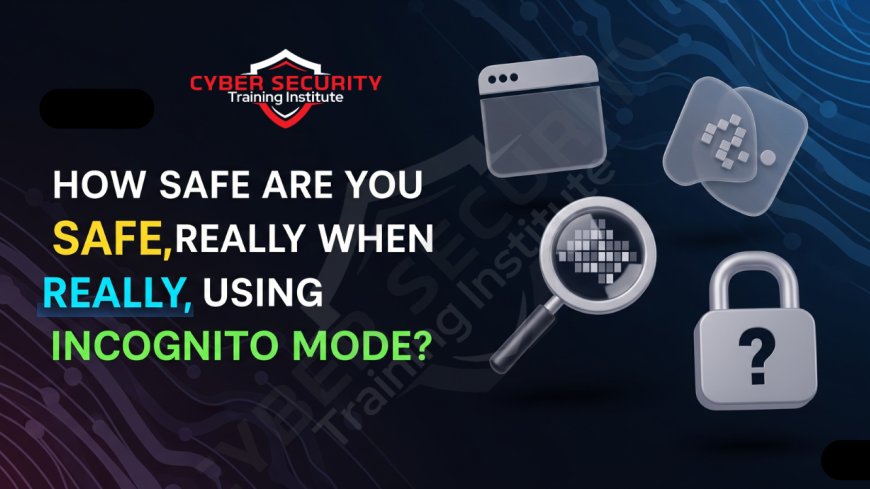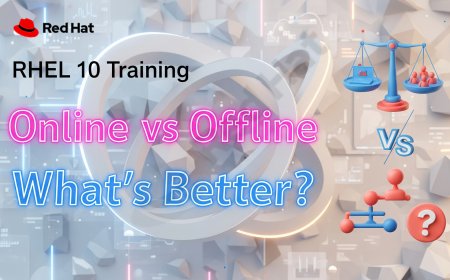How Safe Are You Really When Using Incognito Mode?
Picture this: you’re about to shop for a surprise gift for your partner, and you don’t want them to stumble across your browsing history. Or maybe you’re researching something personal and don’t want it saved on your device. You open your browser, hit that “Incognito Mode” button, and feel a sense of privacy wash over you. But how safe are you really when using Incognito Mode? Does it truly shield you from prying eyes, or is it just a comforting illusion? In this blog post, we’ll dive deep into what Incognito Mode does (and doesn’t do), debunk common myths, and help you understand how to stay safer online. Whether you’re a casual internet user or someone curious about digital privacy, this guide is for you.

Table of Contents
- What Is Incognito Mode?
- How Incognito Mode Works
- What Incognito Mode Protects
- What Incognito Mode Doesn’t Protect
- Common Myths About Incognito Mode
- Incognito Mode vs. Regular Browsing: A Comparison
- When Should You Use Incognito Mode?
- Better Alternatives for Privacy
- Tips to Enhance Your Online Privacy
- Conclusion
- Frequently Asked Questions
What Is Incognito Mode?
Incognito Mode, also known as private browsing, is a feature offered by most web browsers like Google Chrome, Firefox, Safari, and Edge. When you open an Incognito window, your browser promises not to save certain types of information about your browsing session. It’s like borrowing a friend’s car for a quick trip—you use it, but you don’t leave your personal belongings behind. The idea is to give you a “clean slate” for that session, but as we’ll explore, it doesn’t make you invisible online.
Incognito Mode was introduced to give users a way to browse without leaving traces on their own devices. It’s handy for shared computers or situations where you don’t want your browsing habits to be easily accessible. But it’s not a magic cloak of invisibility, and understanding its limitations is key to using it effectively.
How Incognito Mode Works
When you activate Incognito Mode, your browser creates a temporary session that operates separately from your regular browsing. Here’s what happens behind the scenes:
- Your browsing history isn’t saved. Websites you visit won’t appear in your browser’s history.
- Cookies and site data are deleted when you close the Incognito window. Cookies are small files websites use to track you or remember your preferences.
- Downloads and bookmarks are still saved unless you manually delete them.
- Your browser doesn’t store form data, like names or addresses you type into online forms.
It’s a bit like writing on a whiteboard instead of a notebook—once you’re done, you wipe it clean. But while your device forgets what you did, the outside world (like websites or your internet provider) still sees your activity.
What Incognito Mode Protects
Incognito Mode offers some specific protections, mostly related to your own device. Here’s what it does well:
- Keeps your browsing private on shared devices: If you’re using a family computer or a friend’s laptop, Incognito Mode ensures your searches and visited sites don’t show up in the browser history.
- Prevents cookie-based tracking within the session: Since cookies are deleted when you close the window, websites can’t use them to track you during that session.
- Helps with testing or troubleshooting: Developers and tech enthusiasts often use Incognito Mode to test websites without cached data or saved login sessions interfering.
For example, if you’re shopping for a gift on a shared computer, Incognito Mode ensures your partner won’t see your search for “diamond necklaces” in the browser history. It’s a practical tool for these scenarios.
What Incognito Mode Doesn’t Protect
Here’s where things get tricky. Incognito Mode has significant limitations, and many users overestimate its capabilities. It does not protect you from:
- Websites tracking your activity: Websites can still see your IP address, location, and other data. They can track what you do on their site, even in Incognito Mode.
- Your Internet Service Provider (ISP): Your ISP can see every website you visit, regardless of Incognito Mode.
- Employers or network administrators: If you’re on a work or school network, your activity can be monitored.
- Government surveillance: Incognito Mode doesn’t hide your activity from agencies that might be monitoring internet traffic.
- Malware or keyloggers: If your device has malicious software, Incognito Mode won’t protect you from it.
Think of Incognito Mode as a curtain that hides your activity from others using your device, but it doesn’t stop the outside world from peeking in.
Common Myths About Incognito Mode
There are several misconceptions about Incognito Mode that can lead to risky assumptions. Let’s debunk some of the most common myths:
- Myth: Incognito Mode makes you anonymous online. Reality: It doesn’t hide your IP address or prevent websites from tracking you.
- Myth: Incognito Mode protects you from hackers. Reality: It offers no extra security against cyberattacks or malware.
- Myth: Incognito Mode stops all ads. Reality: Ads can still appear, and some may even be targeted based on your IP or location.
- Myth: Incognito Mode hides your activity from your ISP or employer. Reality: Both can still monitor your browsing.
These myths often stem from the term “private browsing,” which sounds more protective than it actually is. Being aware of these limitations helps you make informed decisions about when to use Incognito Mode.
Incognito Mode vs. Regular Browsing: A Comparison
To clarify what Incognito Mode does and doesn’t do, here’s a side-by-side comparison with regular browsing:
| Feature | Incognito Mode | Regular Browsing |
|---|---|---|
| Saves browsing history | No | Yes |
| Stores cookies | Deleted after session | Saved until cleared |
| Saves form data | No | Yes |
| Hides IP address | No | No |
| Prevents website tracking | Limited (cookie-based only) | No |
| Protects from ISP monitoring | No | No |
This table shows that Incognito Mode’s benefits are limited to your device, not the broader internet.
When Should You Use Incognito Mode?
Incognito Mode is useful in specific situations, including:
- Shopping for surprises: Keep gift searches hidden from others using the same device.
- Using public or shared computers: Prevent your activity from being saved on someone else’s device.
- Testing websites: View sites as a new visitor without cached data or saved logins.
- Avoiding temporary account issues: Log into multiple accounts on the same site without conflicts.
For example, if you’re booking flights and want to check prices without cookies influencing dynamic pricing, Incognito Mode can help. But for true privacy, you’ll need more robust tools.
Better Alternatives for Privacy
If Incognito Mode doesn’t offer the level of privacy you need, consider these alternatives:
- Virtual Private Network (VPN): A VPN hides your IP address and encrypts your internet traffic, making it harder for ISPs or websites to track you.
- Tor Browser: This browser routes your traffic through multiple servers to anonymize your activity, though it can be slower.
- Privacy-focused browsers: Browsers like Brave or Firefox with strict privacy settings block trackers and ads by default.
- Clear cookies regularly: Even in regular browsing, clearing cookies can reduce tracking.
Each of these tools offers stronger protection than Incognito Mode, especially for hiding your activity from websites or ISPs.
Tips to Enhance Your Online Privacy
Want to stay safer online? Here are some practical tips:
- Use strong, unique passwords for each website and consider a password manager.
- Enable two-factor authentication (2FA) for your online accounts.
- Update your browser and device regularly to patch security vulnerabilities.
- Use HTTPS websites whenever possible to ensure encrypted connections.
- Be cautious about what you share online, even in Incognito Mode.
Combining these habits with tools like VPNs or privacy browsers will give you a much stronger shield than Incognito Mode alone.
Conclusion
Incognito Mode is a useful tool for keeping your browsing private on your own device, but it’s not a full-proof privacy solution. It prevents your browser from saving your history or cookies, making it great for shared computers or surprise shopping. However, it doesn’t hide your activity from websites, ISPs, employers, or anyone else monitoring your internet connection. By understanding its limitations and combining it with other tools like VPNs or privacy-focused browsers, you can take control of your online privacy. The internet can feel like a wild west of data collection, but with the right knowledge and tools, you can navigate it more safely.
Frequently Asked Questions
Does Incognito Mode hide my IP address?
No, Incognito Mode does not hide your IP address. Websites and your ISP can still see it.
Can my employer see what I do in Incognito Mode?
Yes, if you’re on a work network, your employer can monitor your activity, even in Incognito Mode.
Does Incognito Mode stop websites from tracking me?
It only prevents cookie-based tracking within the session. Websites can still track you using other methods, like your IP address.
Is Incognito Mode the same as a VPN?
No, a VPN encrypts your traffic and hides your IP address, while Incognito Mode only prevents your browser from saving history and cookies.
Can I use Incognito Mode to avoid targeted ads?
Partially. It clears cookies, which may reduce some targeted ads, but ads can still be served based on your IP or location.
Does Incognito Mode protect me from hackers?
No, it offers no protection against hackers or malware.
Can my ISP see my Incognito Mode activity?
Yes, your ISP can see every website you visit, regardless of Incognito Mode.
Is Incognito Mode safe for online banking?
It doesn’t add extra security. Ensure the website uses HTTPS and you’re on a secure network.
Does Incognito Mode save my downloads?
Yes, downloaded files are saved unless you manually delete them.
Can I use Incognito Mode on my phone?
Yes, most mobile browsers like Chrome and Safari offer Incognito Mode.
Does Incognito Mode affect website analytics?
No, websites can still collect analytics on your visit, even in Incognito Mode.
Can I log into multiple accounts using Incognito Mode?
Yes, it’s great for logging into multiple accounts on the same site without conflicts.
Does Incognito Mode prevent viruses?
No, it doesn’t protect against viruses or malware.
Can I use Incognito Mode to bypass paywalls?
Sometimes, as it clears cookies that track free article limits, but this depends on the website.
Does Incognito Mode work the same in all browsers?
Mostly, but each browser (Chrome, Firefox, Safari) may handle details slightly differently.
Can Incognito Mode hide my location?
No, websites can still detect your location via your IP address or device settings.
Is Incognito Mode enough for private browsing?
No, for true privacy, use tools like a VPN or Tor Browser.
Does Incognito Mode save my search history?
No, it doesn’t save your search history in the browser, but search engines may still track your queries.
Can Incognito Mode be tracked by government agencies?
Yes, it doesn’t hide your activity from government surveillance.
Should I always use Incognito Mode?
No, it’s best for specific cases like shared devices or testing, but it’s not a full privacy solution.
What's Your Reaction?
 Like
0
Like
0
 Dislike
0
Dislike
0
 Love
0
Love
0
 Funny
0
Funny
0
 Angry
0
Angry
0
 Sad
0
Sad
0
 Wow
0
Wow
0
















